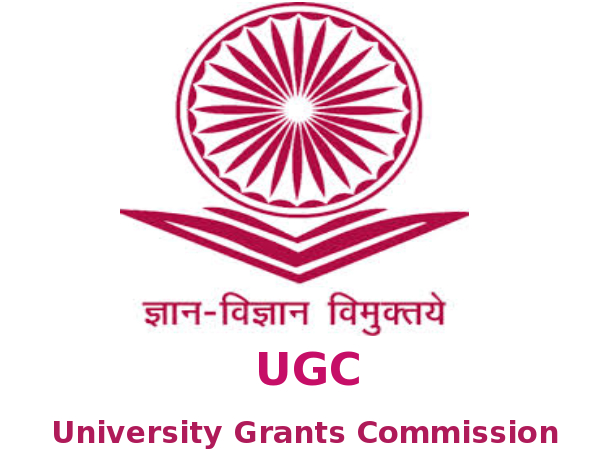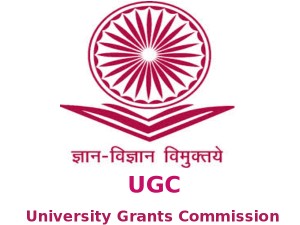In this blog post, Disha Pareek, a student of Rajiv Gandhi National University of Law, Punjab, writes about the education system in India and the how it must revamp itself to cater to the ever-evolving youth of India with its changing needs.
From a very long time, we all have had some discussion about the Indian education system. The discord of the people varies from a lack in the educational system to impart proper skill development to having a very strong elementary school education, which is a very basic essential for every individual. All in all, it cannot be denied that our education system does not give space to the students regarding aptitude development and skills exploitation, and the entire educational system has become very mechanical. In today’s era, it is incumbent that revolutionary changes are done in our education system to meet the growing demand of highly skilled people whether it’s Government employees, entrepreneurs, IT graduates, economists and even lawyers.
Who decides what we study?
The University Grants Commission (UGC) of India is a statutory body set up in accordance with the UGC Act, 1956 under Ministry of Human Resource Development and is responsible for coordinating, determining and maintaining a minimum standard in higher education. It has 6 regional offices in India. Section 22(3) of the University Grants Commission Act, 1956 which mandates that right to confer any degree, which is previously approved by the central government and is mentioned in this behalf by the Commission by notification in the Official Gazette, will be considered a ‘degree’ in the eye of law.
The University Grants Commission (UGC), so as to ease the procedure to apply for a degree for Masters has provided a list of the degrees for the purpose of Section 22 of the UGC Act, 1956. The following are the degrees in the field of law that are recognized[1]:-
- Master of Law or Laws (M.L.)
- Master of Law (L.L.M.)
The University Grants Commission (UGC) has made it compulsory for all universities to secure the permission of UGC six months before starting any new degree course with a nomenclature that does not come under the commission’s list of approved names of degrees. Universities have to adhere to the provisions of the UGC Act vis-a-vis approved nomenclature of degrees and observance of minimum standards of instruction before an award of degrees. If any country violates these provisions it can draw action, including suspension of grants, as opposite to the university or institution concerned.
This step is taken in the wake of the mushroom growth of private universities and deemed universities introducing courses with new degree nomenclatures in a bid to attract students. Problem occurred when students with such unspecified degrees did not find employment. The commission has been, now and then, asking the universities to award degrees which come under the framework of Section 22 of the UGC Act. If a university wishes to award a degree other than the one specified by the UGC, it would need a prior approval before 6 months of starting the same.
Does nomenclature matter?
Taking a cue from the education system abroad, UGC should recognize that name of the course should not matter but time and again, it has denied giving the recognition to courses just because of its name. Rather than doing this, the need of the hour is to judge a course by its credit-worthiness and not the name or label it has.
The UGC should strive to improve the Indian Education system by giving a small contribution so that the students are motivated to pursue their studies and career in India.
NLS Bangalore case
NLSIU Bangalore, one of the best law colleges in the country is vying for the University Grants Commission’s (UGC) permission to allow it to award its public policy course students the degree for which they applied in 2014. The story is that NLSIU began a post-graduate course in public policy, for the first time, in 2014. It named the course as the “Master of Public Policy” – a nomenclature which is used internationally in almost all universities. In NLSIU’s case, the total number of students who took admission was 40 and in 2015 it rose to 50.
However, the UGC did not approve the name of the course and wanted to rename as “MA in Public Policy” which means Masters of Art. The college, for this purpose had also set up a committee, around three months ago, with three of the course’s faculty members and several students of the course, to prepare a report for the UGC. The aim was to convince the UGC to accept NLSIU’s original “Master of Public Policy”‘ as the name for the program.
NLSIU had requested the UGC for such permission in 2014 too before starting the program, but the UGC did not grant the permission at the time. The MPP program was as per the global standards and syllabus for such course was unique, with students undertaking unique clinical workshops, research work, and dissertation. The college had hired distinguished professors and academicians for the same. The UGC should, with an open mind, establish better criteria for recognizing a course and should also lay down guidelines keeping in mind the standard of the college.
UGC perspective
In 2013, the UGC had adopted the degree nomenclature recommendations submitted by Indian Law Institute (ILI) Prof Dr. Furqan Ahmad’s committee. Since then, the commission does not allow colleges to award any degrees whose name is not included in the recommended list.The “Master of Public Policy” does not fall in the list.
UGC, after 2013 had become extremely stringent about maintaining uniformity in the application of its rules on degree nomenclatures. “There is a list of specified degrees which the UGC has, which is essential to maintain uniformity and to maintain standards. It poses a great problem for the students when they go from one university to another because the degree awarded must be in the same pattern with that of the other university.”
Any university that wants to award a course in any stream has to take prior permission from the UGC. The UGC is for the benefit of students and colleges and the guidelines of UGC should not be ignored, and universities should honour the authority of UGC as it also aims to make the procedure simple.
Are courses run without UGC recognition legal in India?
Section 22 of the University Grants Commission Act, 1956 confers the power of granting degrees to only those universities established by a central or state act. If any institution/university wants to run a course, a prior recognition or approval by UGC is a must.
The procedure for acquiring such recognition is pretty simple. Firstly, an application with all the details of the said course should be sent to UGC and afterward, an expert team in collaboration with representatives of the institution will hold a meeting. Then, the institutions will be selected who would get UGC’s recognition by decision of the expert committee. The institutions which get such approval will be provided with one-time monetary assistance by UGC. There shall also be the constitution of an expert committee for inspection of such institutions running the courses.
Consequences of violation
Anything which is not legal is illegal. If on inspection, a university found not to be in conformity with the regulations of UGC, the commission may pass an order prohibiting the university from running any such course. UGC must specify the course that a university wants to award. Any university that awards unspecified courses/degrees shall be liable as per the provisions of Section 24 of University Grants Commission Act 1956.
Online education and its importance
In today’s era, online education or learning through the medium of the internet is very common. Classroom teaching had various limitations like that of location, accessibility, transportation and cost. The most important benefit of online education is the expansion. According to a recent study in the online learning program, after the United States, India has been reported to have the second highest number of online course enrolments with more than over 1,55,000 students from the country. Of a total of around 1.2 million students worldwide, 32% are from the U.S while 15% are from India.[2]
Indian education has improved by leaps and bounds, and conventional education system has now become the thing of the past. This novel concept of accessibility of e-education to anyone at anytime and anywhere is drawing a lot of attention in India. It is benefiting all the stakeholders. The students are benefited by easy availability and more opportunities; the teachers also get to expand their scope of teaching as they can now teach internationally. The college or institution that awards such course is the main beneficiary of this.
UGC’s stance on online education
Many universities offer different online courses, but the University Grants Commission, even after so much development in Indian education system has not recognized education and learning through the internet.
There is an urgent need to revamp the procedure and processes of UGC so as to suit to global standards. It’s high time that India realized the importance of education and learning through novel methods because none of the Indian universities can make it to top 100 universities globally due to the over-interference of the commission. The UGC has not been able to deal with the complex emerging problems in the education system, and need is felt to reshape and restructure the commission
De-recognition of the course of Karnataka Open University
In a decision that will badly affect thousands of students and teachers, the UGC has discontinued recognition of all online courses as provided by Karnataka State Open University. UGC faced a lot of criticisms after this step. In another such act by UGC, it denied giving recognition to online courses of different open state universities. The UGC should understand the priorities and it should be progressive and not regressive because offline learning is a passé.
Future prospects
Swayam: The Human Resource and Development Ministry is planning to launch MOOC that is Massive Open Online Course throughout the country. Its main objective is to provide high-quality education relating to different streams and from school level to under and post graduate education.
Another step would be setting up of National Higher Education Authority because UGC has been given blanket powers to regulate the affairs of education and there should be a body to regulate UGC itself. The authority should have the powers of de-recognizing institutions or their courses. It should have a body of experts, scholars, and academicians to evaluate any course, institution or anything of this sort.
Footnotes:
[1] Available at http://www.ugc.ac.in/oldpdf/pub/report/6.pdf
[2] Available at http://24x7learning.com/blog/prospect-of-elearning-in-the-indian-scenario/
 Serato DJ Crack 2025Serato DJ PRO Crack
Serato DJ Crack 2025Serato DJ PRO Crack













 Allow notifications
Allow notifications



A wonderful article and an eye-opener for the education enthusiast and particularly for UGC.